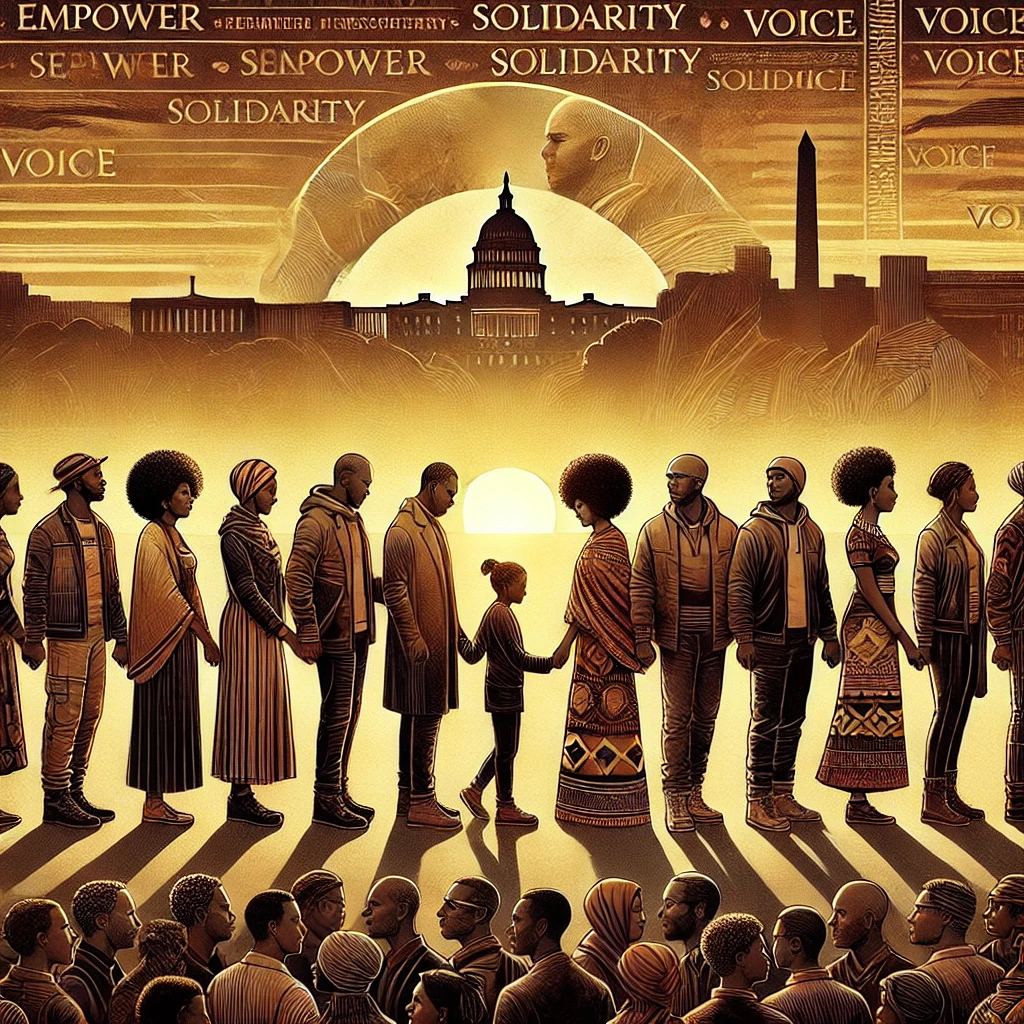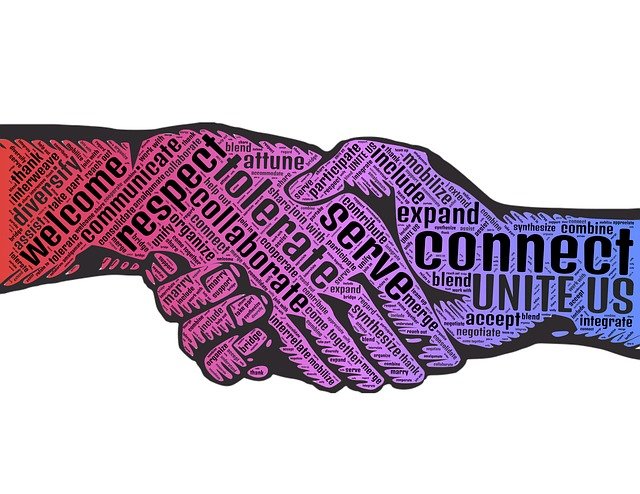Reflecting on the 2024 Election: Identity, Solidarity, and Black Empowerment
It’s been 4 weeks since election night on November 5th, I find myself analyzing post-election data and reflecting on deeper issues around identity, community, and political engagement. Analysts are already dissecting why certain minority groups may have voted in ways perceived as counter to their self-interests, but I’m focused on a different set of questions and concerns.
The Significance of Voting Participation
A major frustration I cannot overlook is the apathy of those who chose not to vote. This election, arguably the most pivotal of the century, was treated as trivial by too many who decided not to participate. This choice—or lack thereof—could undermine the progress achieved since 1965 and even lead future generations to fight to regain lost ground. The lessons from 2016 should have been enough: protest votes or abstaining only silences one’s voice in the outcome. Our ancestors fought and died for the right to vote, a right that should never be disregarded. As we face this reality, I feel a profound disappointment that so many ignored this responsibility.
Unpacking the Economy as a “Top Concern”
Exit polls indicate that “the economy” was the top issue reported by voters in this election. However, for those of us existing in Black bodies, we recognize that this claim often doesn’t align with our experiences or concerns. The economy has frequently been used as a convenient cover, masking the real reasons—both conscious and unconscious—driving voters toward certain candidates. This election was no different. While voters stated economic concerns as their main motivator, the underlying forces of racial bias, fear, and the desire to uphold the status quo were also at play.
History has shown us that economic concerns are frequently invoked to justify policy shifts that, more often than not, disproportionately affect Black and marginalized communities. Many who wield this justification wish to erase accurate historical narratives and make education more challenging to obtain, so that historical cycles of inequality and discrimination continue. Those of us who understand this pattern must continue to educate others who are open to seeing the full picture.
The data on economic performance leading up to and following the election shows a disconnect: if the economy were genuinely the issue, alongside immigration, the election outcome would likely have differed. We know that the narrative of economic anxiety is selective, applied when it serves to deflect from more profound, uncomfortable motivations. Yet, we also know we have to “play along,” aware that such language conceals far more than it reveals.
Why I Choose to Be Identified as Black, Not BIPOC or POC
The post-election analysis also revealed trends within minority groups that I find troubling. Through this experience, I’ve come to reevaluate how I identify myself. For years, I have been labeled as “a person of color” or “BIPOC” in race-related discussions. However, I now realize these terms do not fully capture my identity or my experience. I am Black. I do not wish to be grouped into broad “nonwhite” categories that obscure the specific realities of Black people in America.
This shift doesn’t mean I’ll stop working with others across racial or ethnic differences. It means I am choosing to honor the specific legacy, struggles, and resilience of being African American. As an anti-racist educator, I have seen the complexities within so-called “communities of color,” where Black voices and contributions to anti-racist work are sometimes marginalized or dismissed. True solidarity must respect and center Black experiences, especially when we confront challenging issues like systemic racism and white supremacy.
Lessons from the 2024 Election: Prioritizing Economic Gains Over Social Justice
The 2024 election underscored a troubling pattern: individuals across racial groups made voting choices that favored economic gains over the rights and social justice of their own communities. While economic concerns are valid, they should not come at the expense of marginalized groups’ rights. History reminds us that pursuing economic stability through proximity to whiteness is a precarious path. Analysts predict that the economic policies supported in this election may backfire, disproportionately impacting Black communities.
It is disheartening to witness other groups avoid confronting systemic inequalities, hoping for security in aligning with dominant structures. Yet, proximity to whiteness has always been a fragile “protection” for marginalized groups. Throughout history, alliances formed around economic or social gains, rather than genuine solidarity, have often left marginalized communities vulnerable and unsupported in moments of crisis.
The Hidden Costs of Proximity to Whiteness
For many non-Black communities of color, aligning closer to whiteness—whether through appearance, social behaviors, or supporting harmful policies—has been a strategy for acceptance. But this acceptance does not bring true security. History offers countless examples, from American slavery to internment camps in World War II, where marginalized groups attempted alliances with dominant powers, only to be oppressed by those very forces.
Today, this dynamic persists in policies and rhetoric that increasingly target naturalized citizens and dismantle diversity and inclusion (DEI) structures. The anti-DEI movement’s rise signals that aligning with dominant forces is an unreliable safeguard for any community. As these policies advance, those who distanced themselves from Black advocacy may find themselves affected in ways they did not anticipate.
Reclaiming My Identity: The Frustration with Black Advocacy in Broader Movements
One of my greatest frustrations is that Black individuals frequently lead the advocacy for equity, only to face silence or rejection when raising issues specific to our community. While I care deeply about the experiences of non-Black people of color, I am disheartened when some of these communities distance themselves from Black advocacy. My choice to identify solely as Black, rather than BIPOC or POC, represents a reclamation of my identity and a commitment to centering Black voices in discussions directly affecting us.
In my role as a higher education professional and residence life director, I understand the importance of fostering inclusive, genuine communities. However, unity cannot exist without honesty and a shared commitment to each other’s liberation.
Moving Forward: Building Genuine Solidarity
My commitment is clear: I will continue to advocate for Black voices and recognize our unique struggles and achievements, both within academia and beyond. Identifying as “Black” honors the distinct experiences and resilience of my community. This is not about dividing; it is about ensuring that Black perspectives are neither marginalized nor generalized in discussions on race and equity.
In today’s complex racial landscape, reclaiming specific identities is crucial. Black individuals deserve to be acknowledged and represented authentically in all discussions about race. By embracing my Black identity, I hope to inspire others to do the same—not to foster division, but to encourage genuine solidarity founded on respect, understanding, and a shared vision of true equity.
Reflective Questions for Community Dialogue
- How can we create more inclusive spaces within racial and ethnic alliances that honor the unique experiences of Black individuals?
- What steps can we take to ensure that unity among communities of color respects the distinct struggles faced by Black communities?







